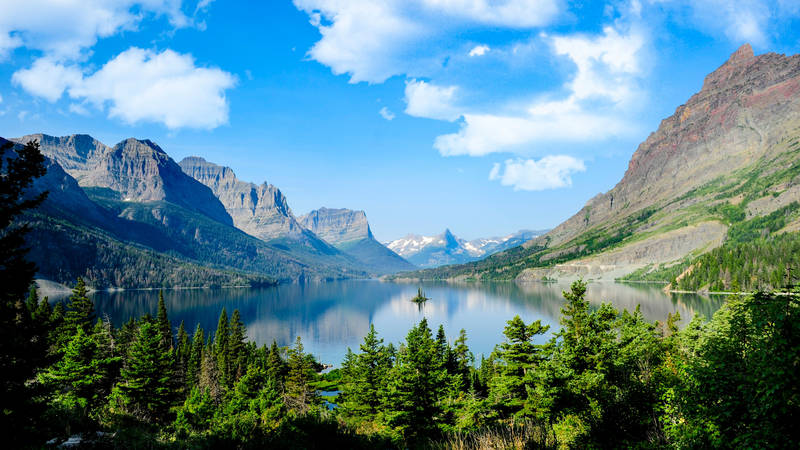"We are grateful to everyone who raised their hand to help create this visionary plan for the little park that could, the Blackwell National Historic Site." -- NPCA's Cristóbal López.
Marfa, Texas – The National Parks Conservation Association (NPCA) is proud to unveil a brand-new “Blackwell Blueprint,” in partnership with the Blackwell School Alliance and Visit Marfa. This groundbreaking plan sets the stage for the future of Blackwell School National Historic Site in Marfa, Texas, which is the second national park site in the country dedicated to contemporary Latino history. NPCA, the Blackwell School Alliance, and Visit Marfa celebrated this visionary new plan at a community gathering at the historic USO Building in Marfa on Friday, July 19.
The Blackwell Blueprint is the product of community collaboration, informed by a three-day workshop at Blackwell School in October 2024. The purpose of this workshop was to engage in discussions with architects, planners, historians and community members about enhancing the necessary visitor improvements while using this new national park to advance important community development goals. About 40 people from Marfa and throughout Texas participated in the workshop in person at Blackwell School. In addition, the project team conducted more than two dozen interviews to capture all the ideas people were willing to offer. Visitors to the national historic site also happened by during the workshop – including several Blackwell alumni – and offered their ideas, experiences, and thoughts.
The Blackwell Blueprint identifies park needs and offers key recommendations that will help this new national park site and the community thrive together, as well as an action plan for how to make those recommendations a reality. Some key findings include (but are not limited to):
There is a need to “create a sense of place,” for park visitors to Blackwell. To accomplish this, the community must work with the National Park Service to repair, restore, and interpret the Blackwell School building, grounds, and campus. This includes fortifying the existing original 1909 schoolhouse as well as designing new signage, walkways, and interpretive displays that tell more stories on the playground or other school grounds.
Most urgently, Blackwell School National Historic Site needs full-time National Park Service staff, a fair budget, and more resources. Without more federal resources, Blackwell will not be able to connect visitors to Latino history in Texas and across the country, and many priceless stories could be lost forever.
Blackwell School history is closely intertwined with Latino history and culture in Marfa, a booming tourist destination in West Texas that forms the gateway to Big Bend National Park. The Blackwell Blueprint recommends steps to better connect downtown Marfa’s vibrant arts district, local hotels, and other points of interest to Blackwell. This could include new bike paths, signage, and partnership opportunities.
The report also includes high-resolution imagery, from architectural renderings of what improvements could look like at this park site to detailed maps and diagrams of the town of Marfa.
In communities across the Southwest, school districts once enforced “de facto segregation,” forcing Mexican American children to attend separate schools from their white peers. The Blackwell School was one such institution. Mexican American children at Blackwell were given outdated textbooks and shoddy equipment and in many cases were punished for speaking in their native language.
But despite those painful memories, many Blackwell alumni retain a mix of positive and negative sentiment for their experiences at the school. Many former students proudly recall their time in the marching band and on the football team, viewing the school as a flawed institution that nonetheless had a powerful impact on their lives.
That’s why in 2006, alumni rallied to save Blackwell School from possible destruction. They founded the Blackwell School Alliance, arranging for the school to be turned into a local museum and landmark. Beginning in 2018, the Alliance partnered with the National Parks Conservation Association for a public, grassroots campaign to obtain National Park Service protection and recognition for the school.
Following extensive advocacy by the Blackwell School Alliance, NPCA, and park advocates in Texas and around the country, President Biden signed the Blackwell School National Historic Site Act into law in 2022. This bipartisan bill was originally introduced by former Congressmen Will Hurd and Filemón Vela of Texas. Representative Tony Gonzales, Senator John Cornyn of Texas and Senator Alex Padilla of California brought the bill across the finish line. The park was formally dedicated in 2024, with a special ribbon cutting presided over by then-Secretary of the Interior Deb Haaland.
Cristóbal López, Texas Field Representative for the National Parks Conservation Association, said: “The Blackwell Blueprint was a true labor of love. Together, we listened to Blackwell alumni, hearing their stories of hardship, discrimination, hope, and resolve. Our project team spent days poring over city documents, meeting with architects, planners, and historians. We were united under the common cause of protecting and interpreting Latino history for generations to come. We are grateful to everyone who raised their hand to help create this visionary plan for the little park that could, the Blackwell National Historic Site.“
“In order to fulfill our mission, enact the blueprint’s recommendations and build a better Blackwell together, we are going to need people.” Lopez continued. “Since January, the Trump administration has taken steps to gut the National Park Service, freezing funding and discarding its talented staff. In the last seven months, nearly one in four National Park Service staff have departed the agency under duress. This is completely unacceptable. We need these talented staff and these invaluable resources to protect our parks, and in the case of Blackwell, help this park thrive. The Blackwell Blueprint is a rallying cry for the Park Service, one we hope that the administration takes to heart. Support the Park Service, and help our country’s national parks flourish for future generations.”


